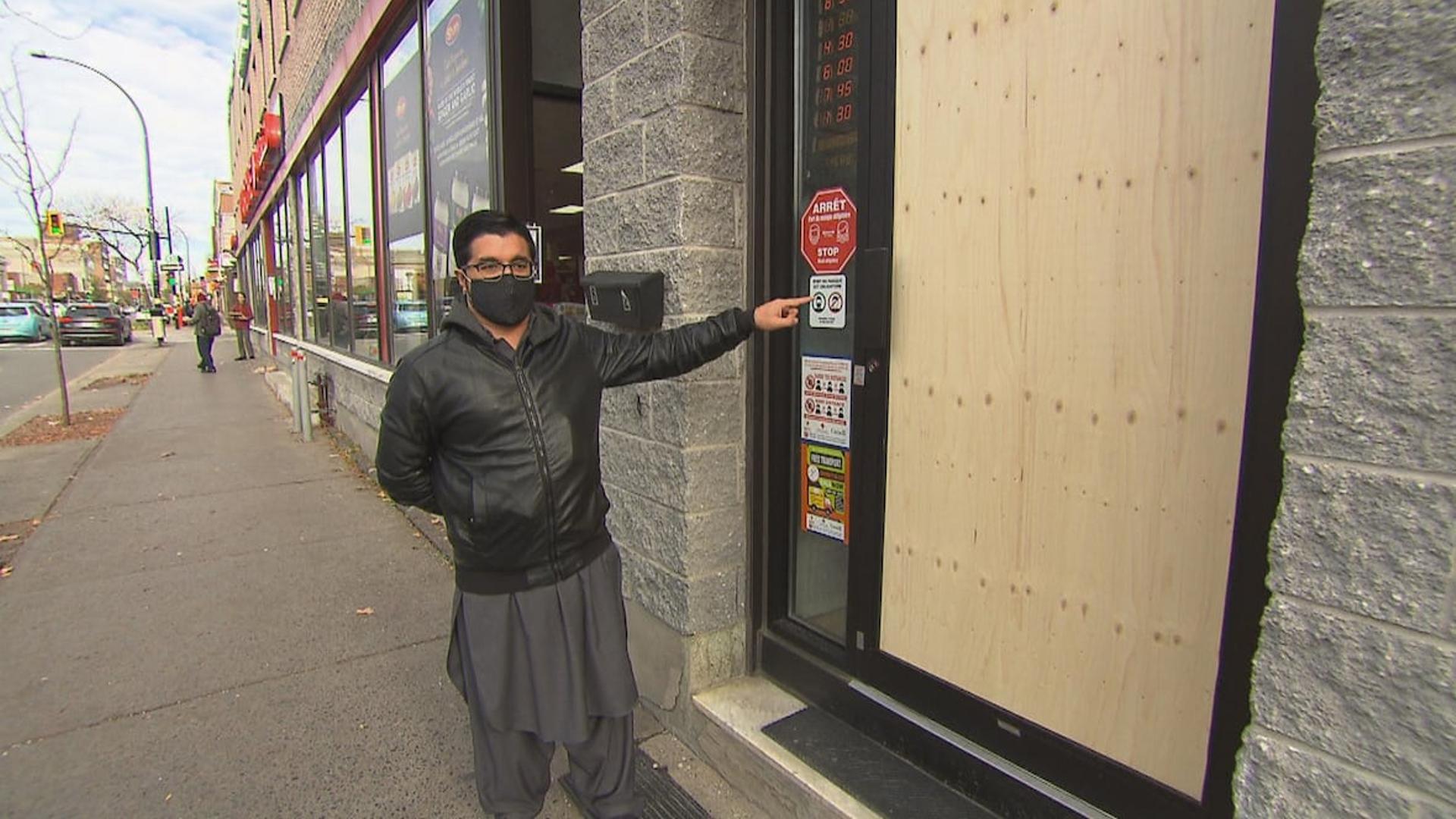Muslim communities across Canada are facing a rising wave of anti-Islam sentiment, with a spate of break-ins and vandalism targeting mosques throughout the country.
Muslims number more than 1 million, or 3.2 percent of Canada’s population, according to the country’s last census, more than double any other visible minority. In spite of that, concerns are increasing as Canadian Muslims say authorities are not doing enough to stop hate crimes or investigate the break-ins.
In the last month alone, three mosques in Montreal were broken into, while a fourth was a victim of the same earlier in March. On October 26, another attempted mosque break-in took place at 3 AM in the lively neighbourhood of Jean-Talon. Jean Talon is known for its halal supermarkets, and visibly North African demographic.
Fortunately, the mosque’s Imam was present, and managed to scare away the culprit. The situation however, could have easily turned into tragedy.
Muslim Quebecois are critical of law enforcement, who they say are not doing nearly enough. Most believe the break-ins were carried out by the same individual, with CCTV footage linking the crimes.
Tariq Khan, who gave a statement to Canadian police was frustrated.
“A six-year-old child could look at these videos and realize it is the exact same person, because the person is not even wearing a mask,” said Tariq Khan. Police managed to track down a suspect and make an arrest, Khan said.
After giving his statement, Khan saw the man being released. He described the way he walked up to him, lit a cigarette, and smiled. The suspect was released with the promise to appear in court. In the following days, two more mosque break-ins took place.
“It’s beyond ridiculous that, despite showing irrefutable evidence, despite such coordination between the community, and showing everything, every single time the person was detained, and released,” Khan said.
Deep roots
In Edmonton, Alberta, six weeks into the first covid-19 lockdown, a man sat in his vehicle outside the oldest mosque in North America, Al-Rashid Mosque, carrying out what he called a “Ramadan Bombathon”.
He broadcast the entire affair on social media, as he took it upon himself to monitor the mosque for COVID-19 compliance during Ramadan. This was all a clear attempt to intimidate the community.
The Al-Rashid mosque was built in 1938 by the first Muslim pioneers who struggled to eke out a living in the -45 degrees celsius weather of Edmonton Alberta. Arab immigrants arrived in Canada as early as 1882. A Muslim Women’s group led by Hilwie Hamdon, approached the mayor of the city at the time, and requested support to build a mosque.
After being allotted a plot of land, they had to raise $5,000 CAD in the middle of a depression. In spite of the difficulties, they succeeded.
On the mosque’s opening day, a renowned Pakistani Qur’an interpreter was in attendance, marking the completion of Canada’s mosque. With Canadian Muslims four or five generations removed from their ancestor’s immigration, the sudden hatred from former neighbours and friends is deeply disconcerting.
In the words of a 16 year-old Somali Muslim attending his mosques youth event, “We have the wrong skins, the wrong names, and the wrong religions. What do you gotta do to make it here?”
Rising anti-Islam sentiment
On October 13, Canadian Prime Minister Justin Trudeau expressed being “deeply disturbed” after a mosque in Toronto received threats quoting the Christchurch attacks.
“Islamophobia and hate have no place in our country, and this kind of behavior and language will not be tolerated. We must do more to counter hatred and we will,” Trudeau said on Twitter on Monday, promising to do more to counter the hatred.
“We have watched with growing concern acts of violence that have occurred around the world due to racism, Islamophobia, and white supremacy,” stated the Canadian Muslim Caucus, a collection of Muslim members of parliament.
This comes nearly a month after a Muslim volunteer was stabbed to death outside another mosque in Toronto.
Anti-Muslim crime and hate has spiked in recent years. In 2017, a shooting took place at the Quebec City mosque where a white Canadian man shot and killed six worshippers, injuring many.
“The only reason he didn’t kill more people is that his gun jammed and he ran out of bullets,” said Crown Prosecutor Pierre Bienvenue.
Alexandre Bissonnette’s lawyers attempted to convince courts to lighten his sentence by arguing he was not driven by a hatred of Muslims. The judge ruled a prison sentence for life, citing his “visceral hatred toward Muslim immigrants.” But for many Muslims, justice and security should not be retroactive, but rather occur before the fact.
Bissonnette started preparing for the massacre by buying weapons and ammunition in 2015. In 2016, he decided he should kill “terrorists.” Three months before the shooting, Jacques said, Bissonnette identified Muslims as his target. He then carried out extensive online research about Muslim centers in Quebec, before eventually attacking.
With significant resources used for the scrutiny and surveillance of Muslims and Islamic centres, many Canadian Muslims wonder if resources would not be better used protecting hard-working Muslims, most of whom are immigrants who came to Canada to build better lives for their families.
But in spite of a liberal government in power, little has been done to counter the rising hate.
The pandemic has seen a flurry of Muslim-linked hate on social media, aided in part by Canadian broadcasters. CP24, a 24-hour Canadian television news channel, showed Muslims praying in a mosque when reporting on a Toronto Hookah that was fined for violating covid-19 bylaws.
Fake news in Canadian social media circles allege that Muslims are super spreaders of Covid-19, have been ignoring physical distancing regulations, and point to mosques as hives for outbreaks.
Short of strong governmental action, or strong legislation governing fake news or anti-religious bias in media, Muslims may have to wait a while longer to find warm acceptance in Canada’s subzero lands.










Discussion about this post